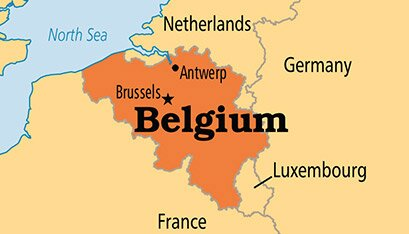India-Belgium Extradition Treaty | 16 Apr 2025
Mehul Choksi, the fugitive diamond trader accused of defrauding Punjab National Bank of over Rs 13,500 crore, was arrested in Belgium after Indian authorities made a formal extradition request under the India-Belgium Extradition Treaty.
- India formally requested Choksi's extradition in August 2024, citing charges like criminal conspiracy, cheating, and bribery. Belgium approved it after confirming the charges are punishable locally.
- Fugitive Criminal: A person who is accused of, or who conspires, attempts, incites, or assists in committing an extradition offence abroad, or is involved in such offences while in India (as per Section 2(f) of the Extradition Act, 1962).
- Extradition Treaty: The Indian Extradition Act 1962 defines an 'Extradition Treaty' as a bilateral agreement between India and a foreign state for the extradition of fugitive criminals.
- The Ministry of External Affairs serves as the Central Authority for extradition matters.
- India-Belgium Extradition Treaty: The new Extradition Treaty, ratified in 2020, replaced the outdated 1901 treaty between Great Britain and Belgium, which was made applicable to India through an exchange of letters in 1958.
- The new treaty, currently in force between the Republic of India and the Kingdom of Belgium, enables the two countries to extradite fugitive criminals.
- The treaty mandates that extradition is only for crimes punishable in both countries and Extradition not obligatory for its own citizens.
- The requesting country must formally submit a request within 14 days of arrest and provide enough evidence within two months. Requests can be rejected if politically motivated.
Read more: Extradition Treaty between India and Belgium

